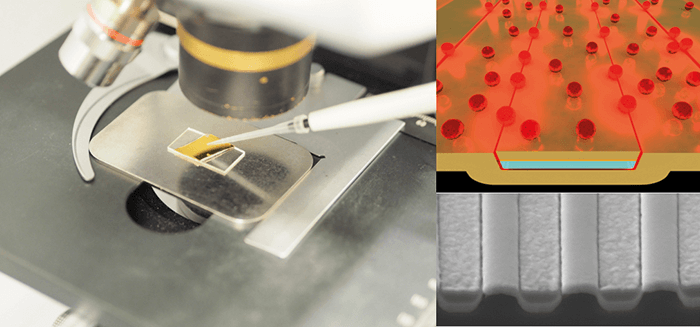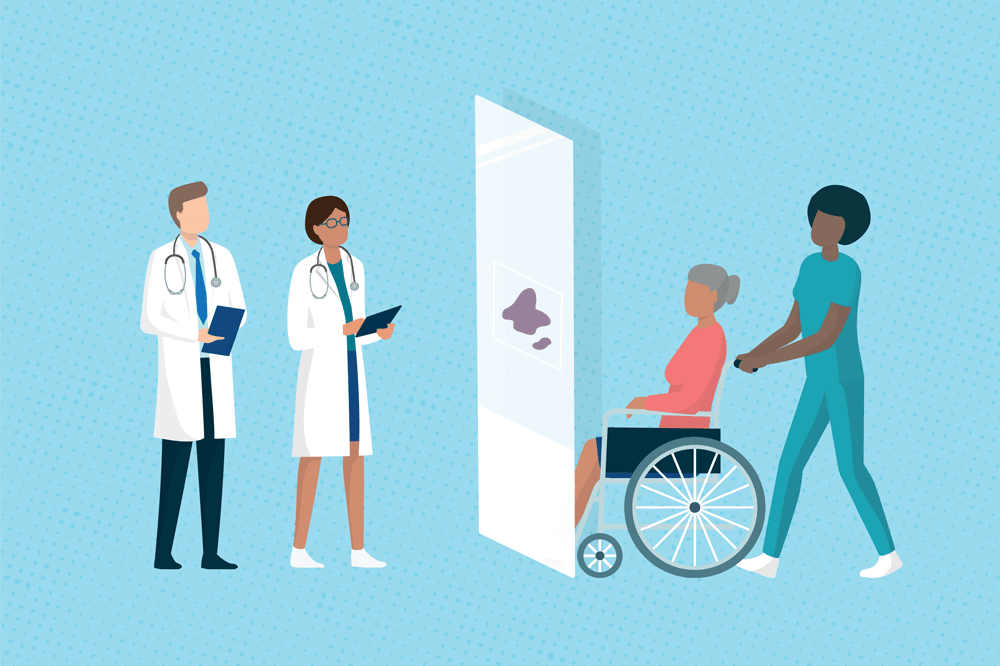
This lymph node biopsy was taken from a 32-year-old female patient with enlarged, tender cervical lymph nodes of three weeks’ duration. Serologic tests for autoimmune diseases were negative. What is the most likely diagnosis? A. Toxoplasma lymphadenitis B. Bacterial lymphadenitis C. High-grade lymphoma D. Kikuchi-Fujimoto disease
Click to register your guess We will reveal the answer in next month’s issue! Do you think you have a good case of the month? Email it to edit@thepathologist.com
Answer to last issue’s Case of the Month… A. PKD1 This liver contains numerous cysts, typical of polycystic liver disease (PCLD). PCLD can be inherited as an autosomal dominant or autosomal recessive disorder. The Online Mendelian Inheritance in Man (OMIM) database lists some 50 gene mutations linked to the disease (1). Most gene mutations found in patients with PCLD involve PKD1 or PKD2 (polycystin-1 and polycystin-2), the underlying molecular defect of autosomal dominant polycystic kidney disease. Polycystin mutations are found in approximately one in 800 people. Mutations in PKD1 are approximately five to six times more common than mutations in PKD2. As adults, most or all people with such mutations will develop polycystic kidney disease, and some of them will also have polycystic liver disease. It is thus safe to conclude that most PCLD patients will also have polycystic kidney disease. Mutations in the other genes listed here are much less common causes of PCLD. Changes to PRKCSH, SEC63 and LRP5 account for 20 percent of autosomal dominant PCLD, a very rare disease with an incidence of 1:100,000. The genetic basis of the remaining 80 percent of autosomal dominant PCLD remains unknown (1). Reference
- MJ Perugorria et al., “Polycystic liver diseases: advanced insights into the molecular mechanisms”, Nat Rev Gastroenterol Hepatol, 11, 750–761 (2014). PMID: 25266109.




